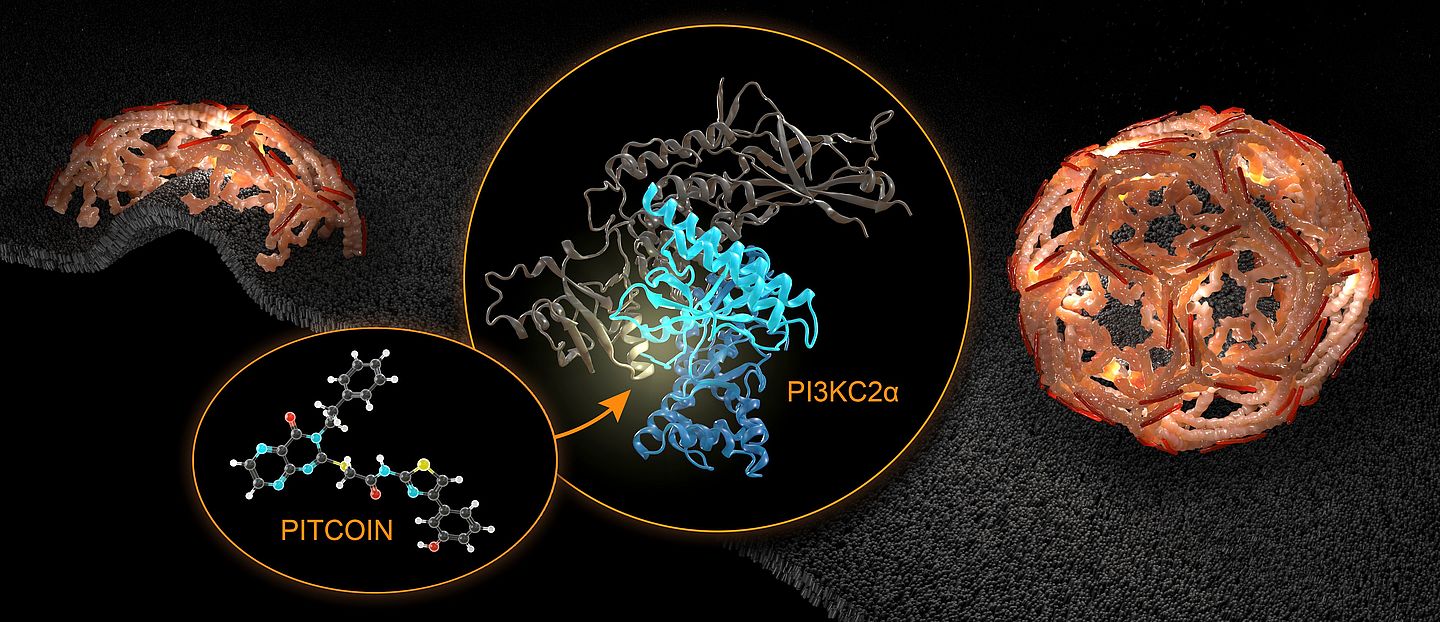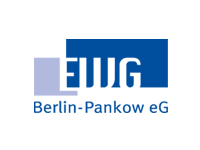Your selection
Research / 16.09.2022
Inhibitor of lipid kinase PI3KC2α identified as potential new treatment of thrombosis

The lipid kinase PI3KC2α is a potential pharmacological target for the treatment of thrombosis and, possibly, cancer. Researchers from the Leibniz-Forschungsinstitut für Molekulare Pharmakologie (FMP) have now identified a potent inhibitor of its activity that serves as a lead for further drug development.
Thrombosis including venous thrombosis and pulmonary embolism with an annual incidence of about 1 in 1,000 adults is a major threat for human health, in particular at old age. To counteract blood clotting, patients take blood thinning medication, which, however, often display severe side-effects such as bleeding (hemorrhage). The lipid kinase PI3KC2a has been found to potently modulate thrombosis by regulating the function of blood platelets that are at the heart of initiating the blood clotting mechanism e.g. in response to high blood pressure or atherosclerosis. PI3KC2a, thus, is a powerful target for the development of novel anti-thrombotic drugs. However, so far no specific inhibitor of PI3KC2a has been described.
Dr. Wen-Ting Lo from the research group of Prof. Volker Haucke in close collaboration with medicinal chemist Dr. Marc Nazaré and his team, researchers from Toulouse, and the Screening Unit of the FMP (led by Dr. Jens Peter von Kries) now has developed and characterized the first PI3KC2a inhibitors. As a result of extensive chemical optimization studies the researchers succeeded to tweak the selectivity of the inhibitors over the entire kinome, in particular against all other lipid kinases. One of these compounds termed PITCOIN3 displays particularly striking selectivity for PI3KC2a and is shown to potently impair platelet membrane remodeling and thrombus formation.
"This breakthrough development has only been possible because of our earlier structural studies on PI3KC2a", comments Dr. Lo, the first author of the study just published in Nature Chemical Biology. Dr. Nazaré adds “that the unexpected non-classical binding mode of the PITCOIN inhibitors reveals a promising new blueprint for the development of related drug leads. The PITCOINs may also be important tools to help other researchers to probe and uncover unknown functions of PI3KC2a”.
"The antithrombotic effect of the PITCOIN inhibitors counteracts thrombosis via effects on the internal membrane structure of platelets, not by blocking their activation, thereby opening an improved therapeutic window" highlights Prof. Haucke.
The reported findings could open new possibilities for the treatment of thrombosis and cancer, as demonstrated by the ability of PITCOINs to interfere with the migration of breast cancer cells in vitro.
www.fmp-berlin.deOverview News
News Buch Berlin
From cell biology to CRISPR/Cas – new knowledge for schools
The Life Science Learning Lab at the Berlin-Buch research campus offers both school students and teachers the opportunity to immerse themselves in science. This year, the facility celebrates its 25th ...
more ...ERC grants Berlin scientists € 2.5 million each
Neuroscientists Gary Lewin and James Poulet at the Max Delbrück Center for Molecular Medicine have won highly coveted and competitive ERC Advanced Grants to study pain and the neural mechanisms that u...
more ...The Protein Expert
Prof. Dr. Fan Liu from the Leibniz-Forschungsinstitut für Molekulare Pharmakologie (FMP) has recently received several awards for her contributions to the field of cross-linking mass spectrometry.
more ...Events Buch Berlin
06.05.2024, 09:00
Realtime PCR und digital PCR Kurs
Der RealTime PCR und Digital PCR Kurs richtet sich an erfahrene PCR Anwender*innen und an Einsteiger*innen. Wichtige PCR Grundlagen werden erörtert, bevor die RealTime PCR besprochen und Genexpression...
more ...22.06.2024, 16:00
Lange Nacht der Wissenschaften 2024
Save the date!
more ...







